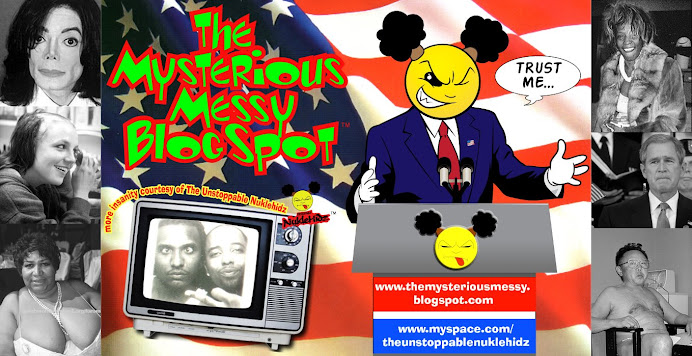
So when do you think that the music industry is gonna get it? I mean I-Tunes is gettin ready to be the number one source of buying music probably by the end of the year if not sooner. They've successfully stomped Best Buy into the ground and now have their sites set on kicking Wal-Marts ass too. You can't stop this movement. To all the industry people that are fighting this "downloading war"realize that you're in a battle against the internet...so you're gonna lose. If ya can't beat 'em join 'em. No one in music is gonna see all the money from album sales. Yes people are going to steal it and you can't stop it. Maybe if they startedputting out quality music again people would actually want to buy it from the store. I dunno just my thoughts...
Krizz
Apple on pace to become top music seller
Posted Feb 27 2008, 09:53 AM by Kim Peterson
Apple's iTunes store has surpassed
Best Buy to become
the #2 music retailer in the country, second only to
Wal-Mart in sales. And an analyst from the NPD Group, which tracks these sorts of things, said that
Apple is on track to catch Wal-Mart this year.
Apple shares dipped less than a percentage point yesterday to close at $119.15. Best Buy shares rose 3% to $46.50, and Wal-Mart shares rose 2% to $51.40.
This news says much about the way we consume music.
NPD notes that 1 million people stopped buying CDs last year, a trend most apparent in young people. In 2007, 48% of teens didn't buy a single CD -- up from 38% in 2006. So retailers like Wal-Mart, Best Buy and Target -- who mainly sell physical CDs -- are going to see music sales slide.
But what does the news say about Apple? Is the rise to No. 2 a result of its own sales savvy, or is iTunes the lucky beneficiary of the CD's decline? A closer look at the numbers sheds a little more light.
Apple said today
it has sold 4 billion songs on iTunes. It
hit the 3 billion song mark on July 31 of last year, so it took about seven months for iTunes to sell 1 billion songs. But guess what -- it took seven months to sell the previous billion songs (from 2 billion to 3 billion). The Los Angeles Times reads into these numbers and figures that
people are buying less music than they used to. I'm not so sure. The only thing you can get from these numbers is that iTunes music sales have flattened. People could still be buying music but from other sources, such as
Amazon's MP3 store.
Then there's the piracy angle. NPD says that 19 percent of U.S. Internet users were active on peer-to-peer file sharing networks last year, and that music sharing grew aggressively among teens. While the number of people on those networks appears to have hit a plateau, the number of files each user downloaded increased.
In fact, only 10% of the music acquired in the U.S. last year was downloaded legally, through iTunes or another online music retailer. Nearly 30 million people bought music legally -- 5 million more than in 2006 -- and many of those were in the 36-to-50 age group.
So Apple's music sales are flat, and illegal song-swapping continues unabated. Amazon and other competitors are moving in as well. Analysts are
starting to suspect iPod saturation.
So go ahead and
pat yourself on the back, Apple, but watch out. In the music business, #2 isn't what it used to be.
Apple on pace to become top music sellerPosted Feb 27 2008, 09:53 AM by Kim Peterson
Filed under:
Apple,
music,
Wal-Mart,
Best BuyRating:
This news says much about the way we consume music.
NPD notes that 1 million people stopped buying CDs last year, a trend most apparent in young people. In 2007, 48% of teens didn't buy a single CD -- up from 38% in 2006. So retailers like Wal-Mart, Best Buy and Target -- who mainly sell physical CDs -- are going to see music sales slide.
But what does the news say about Apple? Is the rise to No. 2 a result of its own sales savvy, or is iTunes the lucky beneficiary of the CD's decline? A closer look at the numbers sheds a little more light.
Apple said today
it has sold 4 billion songs on iTunes. It
hit the 3 billion song mark on July 31 of last year, so it took about seven months for iTunes to sell 1 billion songs. But guess what -- it took seven months to sell the previous billion songs (from 2 billion to 3 billion). The Los Angeles Times reads into these numbers and figures that
people are buying less music than they used to. I'm not so sure. The only thing you can get from these numbers is that iTunes music sales have flattened. People could still be buying music but from other sources, such as
Amazon's MP3 store.
Then there's the piracy angle. NPD says that 19 percent of U.S. Internet users were active on peer-to-peer file sharing networks last year, and that music sharing grew aggressively among teens. While the number of people on those networks appears to have hit a plateau, the number of files each user downloaded increased.
In fact, only 10% of the music acquired in the U.S. last year was downloaded legally, through iTunes or another online music retailer. Nearly 30 million people bought music legally -- 5 million more than in 2006 -- and many of those were in the 36-to-50 age group.
So Apple's music sales are flat, and illegal song-swapping continues unabated. Amazon and other competitors are moving in as well. Analysts are
starting to suspect iPod saturation.
So go ahead and
pat yourself on the back, Apple, but watch out. In the music business, #2 isn't what it used to be.
















